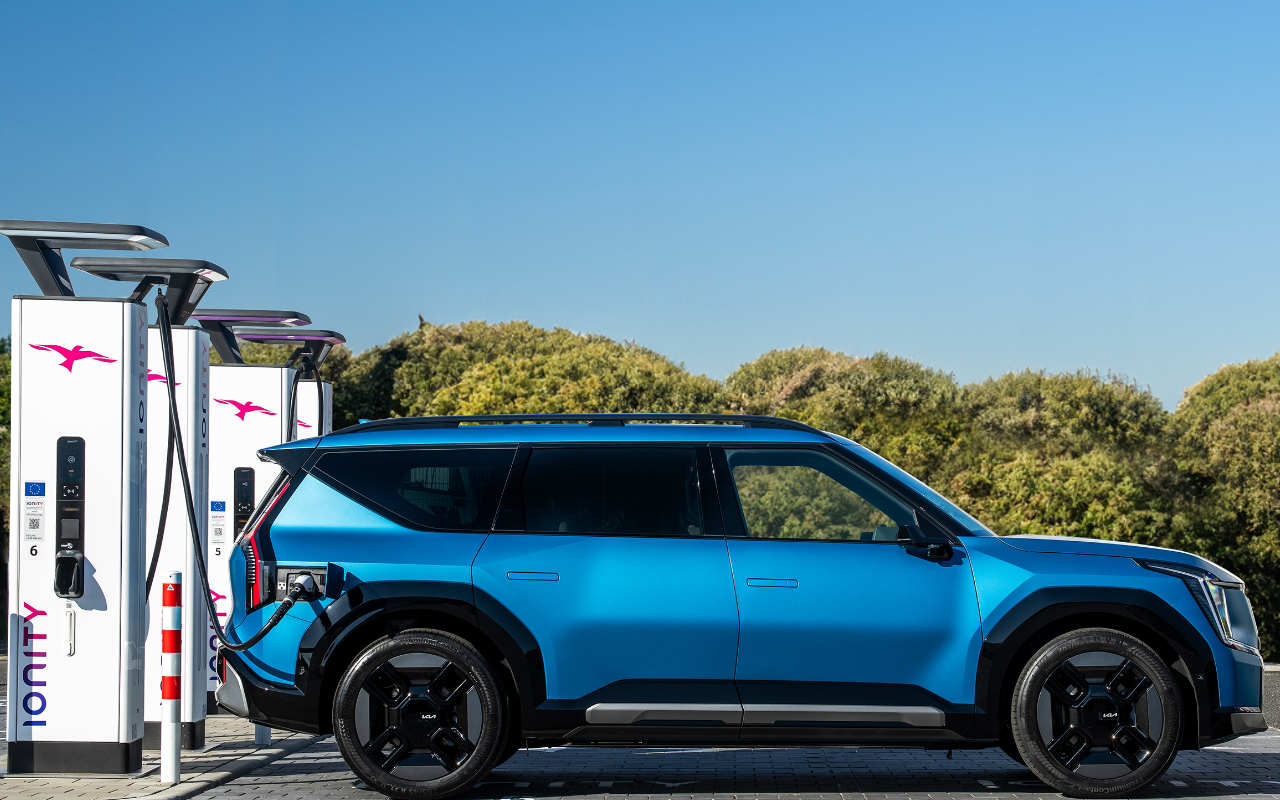
EV whole life costs (WLC). A year ago, you would have expected electric vehicles (EVs) to be considerably cheaper than petrol and diesel (ICE) cars when considering their respective whole life costs, writes Rhys Whitcombe of BCF Wessex (left).
Although the monthly rentals of the EVs were higher, the overall picture would reflect well on EVs once the cost of fuel, tax relief, and National Insurance (NI) had been taken into account. Companies would expect to save money on an EV, and their employees would save eye watering amounts of benefit in kind (BIK) tax each month, as highlighted in our article last October.
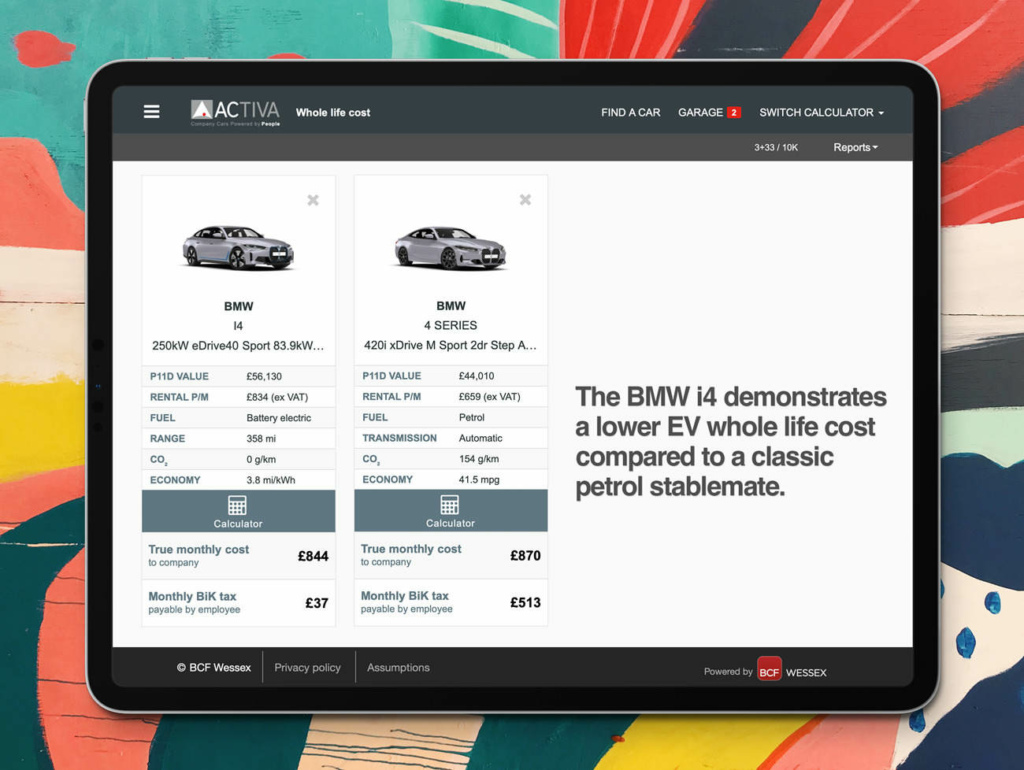
However, as we stand at the beginning of October 2023, the market has shifted; some EVs are now more expensive than their ICE counterparts. So what has provoked this change?
Well, it’s common knowledge that the residual values (RVs) of EVs have been steadily dropping over the course of 2023; as a result, funders have gradually increased the monthly rentals to reflect the greater cost of ownership over the lease term. With these increased rentals ultimately landing at the feet of customers, the WLCs of EVs have risen.
Additionally, while the cost of electricity has decreased over the last year, domestic prices remain high and many public rapid chargers have a greater per mile cost than petrol or diesel; meanwhile, petrol and diesel prices have fallen by around 25% contributing to the relatively higher WLC of EVs, as shown below.
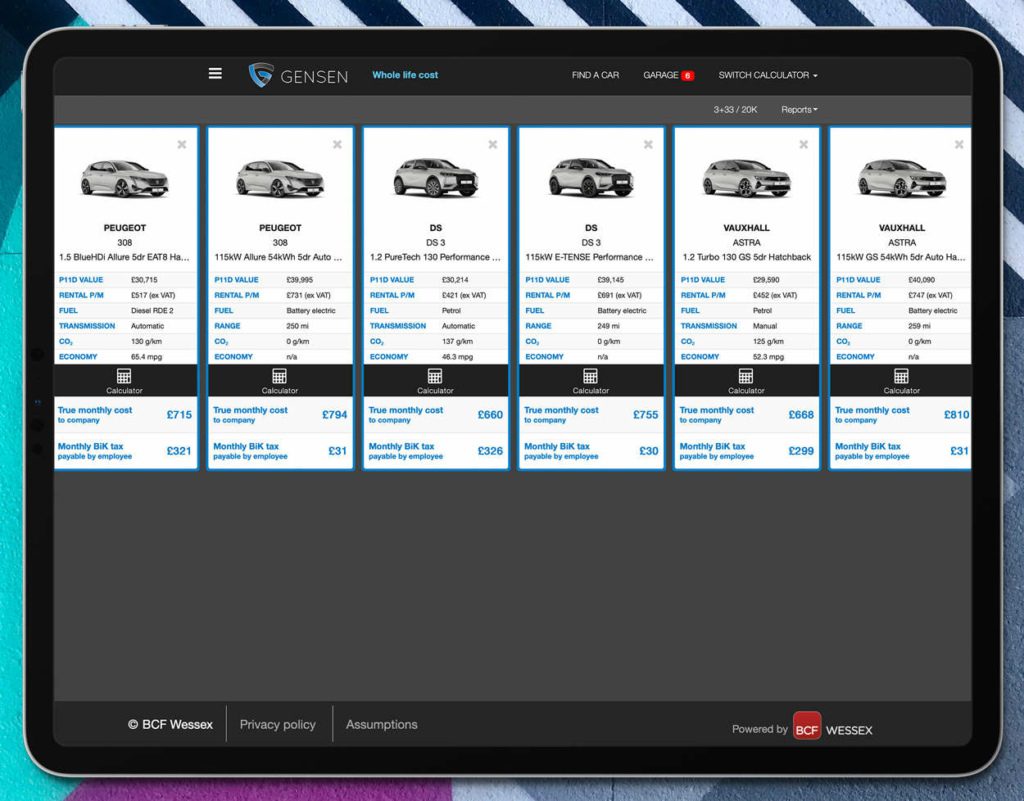
But what does this mean for you and your customers? Should you U-turn and push ICE company cars again?
Well, no, probably not in most circumstances, because the BIK tax associated with ICE cars remains exceptionally high. But how can you promote the adoption of EVs if WLCs are on the rise?
We believe now is the time to promote salary sacrifice
Following the Prime Minister’s recent announcement that the ban on the sale of new ICE cars in the UK will be deferred by five years, we anticipate that BIK rates for EVs will need to remain low for several more years to encourage take up.
With salary sacrifice remaining the cheapest way to drive an EV, employees and employers can take advantage of incredible savings. With many cash allowance takers already choosing salary sacrifice over PCP or PCH, we’re beginning to see some major company car fleets transitioning to salary sacrifice, with company car drivers being able to choose from a wider range of EVs than on the company car scheme.
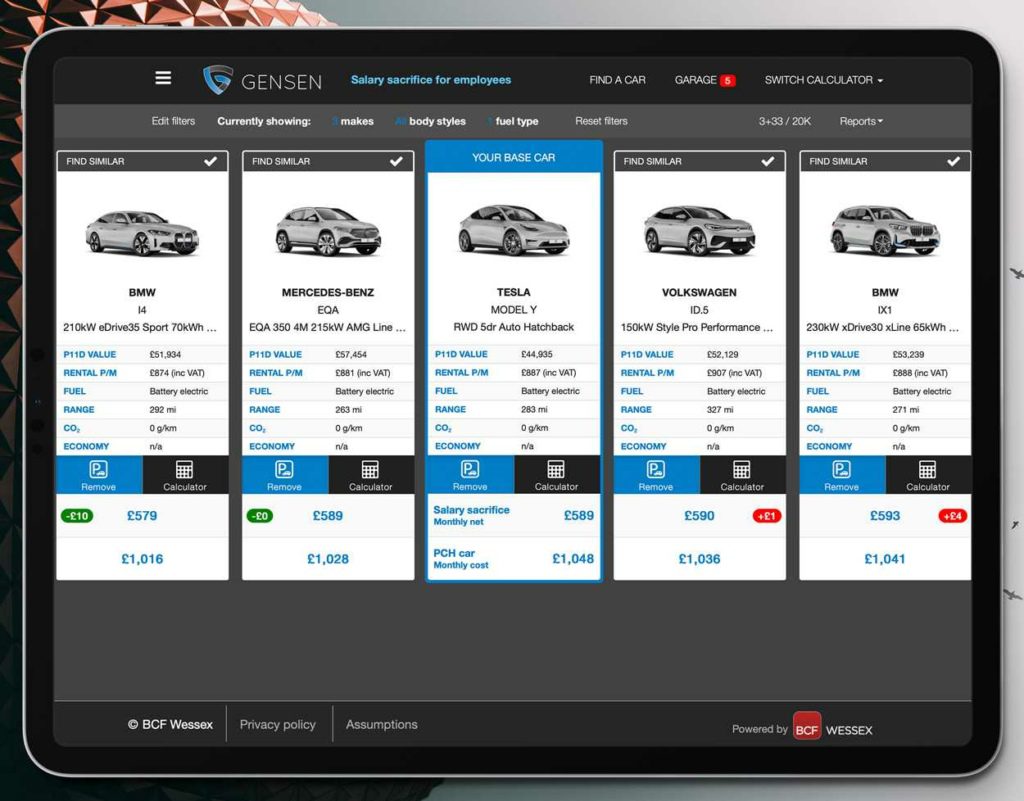
If salary sacrifice doesn’t sound appealing to a certain customer, that’s okay
The increase in the WLCs of EVs hasn’t made them completely unaffordable, they are just slightly more expensive for the business than similar ICE cars, meaning the door isn’t completely closed to their adoption. Overall, once BIK tax is factored in, the EVs are still considerably cheaper, so an employer’s increased WLC can be offset by a well-judged private use contribution.
And, of course the recently adopted Zero Emission Mandate which confirmed that in 2024 at least 22% of newly registered cars must be an EV, requires manufacturers to sell more EVs, which may point toward impending price changes and further changes to the ICE vs EV WLC comparison.
The market changes rapidly, but Gensen allows you to keep pace; it’s the perfect analytical tool to help you quickly find the best solution for your customers.
Please contact us at BCF Wessex to discuss how Gensen can help you advise your customers in an instant and keep your eyes on the ever-moving goalposts.
For more help with salary sacrifice
Contact BCF Wessex: 07840 198545 | info@bcfwessex.co.uk

Select Fleet Solutions – Eton celebrates 25 years
Select Fleet Solutions – Eton Office, formerly Benchmark Leasing, is celebrating 25 years in the leasing broker sector
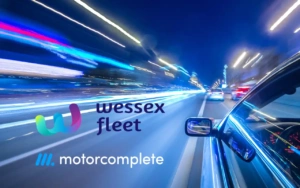
Wessex Fleet chooses MotorComplete broker platform for ARs
Wessex Fleet has selected the MotorComplete broker platform to provide websites for the Wessex Appointed Representatives (ARs)

New executive appointments in the fleet and leasing broker sector
There have been a raft of new appointments in the fleet and leasing broker sector, including the appointment of Ian Jeffery at PHVC

Broker News Awards 2024 in pictures
The Broker News Awards 2024 took place at the Orrery in London’s Marylebone. Here are the pictures to remember the event

Broker of the Year 2024 winner profile: Synergy Car Leasing
Synergy Car Leasing was voted Broker of the Year 2024 by the judging panel – here’s the winner’s profile supported by Leasing.com
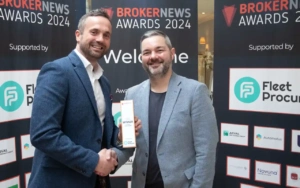
Broker News Awards 2024 – the winners
The Broker News Awards 2024 – supported by Fleet Procure – produced outstanding winners, with Synergy taking the Broker of the Year title

